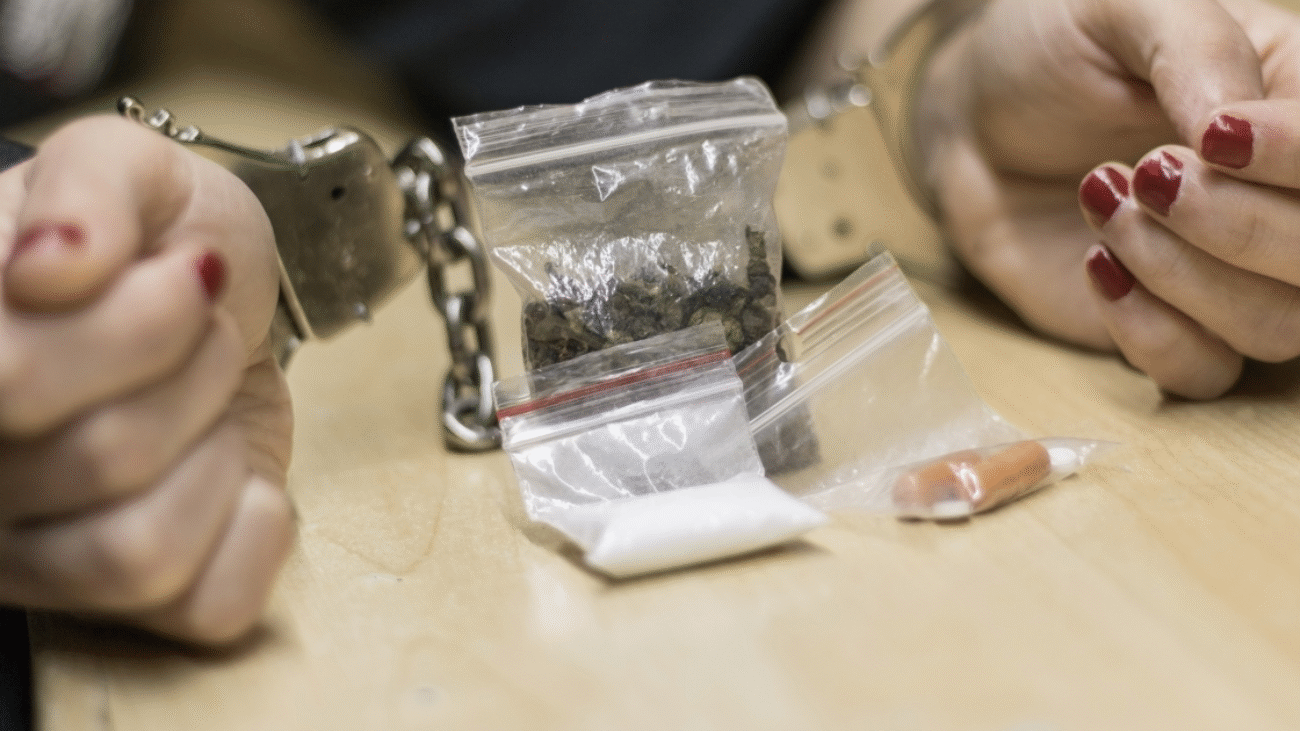NDPS & NCB Law in India
The problem of drug abuse and trafficking is a global concern, and India is no exception. To address this issue, India has enacted one of the world’s most stringent laws — the Narcotic Drugs and Psychotropic Substances Act, 1985 (NDPS Act). The law criminalizes every aspect of drug abuse — possession, consumption, manufacture, sale, transport, and financing. Enforcement of this law is spearheaded by the Narcotics Control Bureau (NCB), India’s apex drug law enforcement agency.

Why Was the NDPS Act Enacted?
Before 1985, India had fragmented drug laws spread across various colonial-era legislations. But with rising drug addiction, international obligations under the UN Single Convention on Narcotic Drugs (1961) and increasing trafficking from the Golden Crescent and Golden Triangle, India needed a uniform, strict, and deterrent drug law.
Thus, the NDPS Act was passed in 1985, replacing outdated laws like:
-
Opium Act, 1857
-
Dangerous Drugs Act, 1930
-
NDPS Rules, 1985 (framed under the Act)
What is the NDPS Act?
The Narcotic Drugs and Psychotropic Substances Act, 1985 is a comprehensive criminal statute. It prohibits:
-
Production
-
Manufacture
-
Cultivation
-
Possession
-
Sale
-
Purchase
-
Transport
-
Storage
-
Consumption of narcotic drugs or psychotropic substances
It applies uniformly across India, and has extraterritorial applicability too — i.e., Indian citizens involved in drug crimes abroad can be prosecuted under it.
Key Definitions Under the NDPS Act
-
Narcotic Drug: Opium, morphine, heroin, cannabis (charas, ganja), coca leaf, etc.
-
Psychotropic Substance: LSD, MDMA (ecstasy), amphetamines, diazepam, etc.
-
Small Quantity: As defined under the NDPS rules — varies substance to substance. For example:
-
Ganja: up to 1 kg
-
Heroin: up to 5 grams
-
-
Commercial Quantity: Quantities above a specified threshold (e.g., 1 kg heroin).
Offenses and Punishments Under NDPS Act
Possession for Personal Use
-
Small Quantity: Up to 1 year imprisonment or ₹10,000 fine or both.
Possession Beyond Small Quantity
-
Intermediate to Commercial Quantity: Up to 10 years imprisonment and ₹1 lakh fine.
Commercial Quantity
-
Strictest Punishment: 10–20 years imprisonment and up to ₹2 lakh fine.
-
Repeat Offenders: May face 30 years to life imprisonment or even death penalty (under Sec 31A).
Cultivation of Cannabis/Opium
-
10 years rigorous imprisonment and fine up to ₹1 lakh.
Consumption
-
Narcotic Drug: Up to 1 year imprisonment or ₹20,000 fine or both.
-
Addicts: May be referred to rehab centers.
Bail Under NDPS Act: Why It’s Difficult
NDPS is a special law, and bail is highly restricted. Under Section 37:
-
Bail is only granted for commercial quantity if:
-
The court is satisfied that the accused is not guilty, and
-
He is not likely to commit any offense while on bail.
-
This “double condition” makes bail extremely difficult, especially during initial stages.
Role of Narcotics Control Bureau (NCB)
The Narcotics Control Bureau (NCB) is India’s lead anti-drug law enforcement agency, under the Ministry of Home Affairs.
Key Functions:
-
Investigates drug trafficking cases.
-
Coordinates with Customs, Police, CBI, ED, and foreign agencies.
-
Seizes narcotics and arrests traffickers.
-
Monitors India’s compliance with UN drug treaties.
Powers Under the NDPS Act:
-
Conduct search and seizure operations.
-
Arrest without warrant.
-
Freeze bank accounts, confiscate property under Section 68A.
NCB’s Jurisdiction:
It handles inter-state and international trafficking cases and those involving celebrities, high-profile people, or syndicates.
Procedure of Investigation Under NDPS
Step-by-Step Legal Procedure:
-
Tip-off / Intelligence Input
-
Search & Seizure under Section 41 to 43
-
Must follow procedural safeguards like:
-
Search in presence of magistrate or gazetted officer
-
Rights under Section 50
-
-
-
Arrest – Must be documented and person informed of their rights.
-
Filing of FIR
-
Medical Examination – For addicts or users
-
Remand and Bail Hearings
-
Filing of Charge Sheet
-
Trial before Special NDPS Court
Procedural Safeguards for the Accused
Even though the law is strict, certain procedural safeguards exist:
-
Section 50: Search of a person must be done in presence of a magistrate or gazetted officer.
-
Section 52A: Proper inventory and certification of seized items.
-
Section 67: Voluntary confessions are admissible but controversial.
-
Section 54: Presumption of guilt if drugs are found — but accused can rebut.
Failure to follow procedure can result in quashing of the case or acquittal.
Rehabilitation vs. Punishment
The NDPS Act also focuses on reform and rehabilitation:
-
Section 64A: Immunity from prosecution if addict voluntarily seeks de-addiction.
-
Juveniles and first-time offenders may be sent to rehab or probation.
Criticism and Challenges of the NDPS Act
Presumption of Guilt
Burden of proof shifts to the accused — this is against criminal jurisprudence norms.
Harsh Bail Provisions
Section 37 makes pre-trial detention extremely long — even for minor offenses.
Abuse of Power
There are increasing allegations of:
-
False implication
-
Planting of evidence
-
Targeting celebrities/media trials
Focus on Users, Not Kingpins
Most arrests under NDPS are small-time users or peddlers, not major traffickers.
Landmark Judgments
Mohan Lal vs. State of Punjab (2018)
Held that the same officer cannot be the informant and the investigating officer, to ensure fairness.
Toofan Singh vs. State of Tamil Nadu (2020)
Confession made under Section 67 to NCB officers not admissible as evidence under Article 20(3).
Arjun Singh vs. State of Haryana (2023)
Strict compliance of Section 50 was reiterated — any lapse could vitiate the trial.
Recent High-Profile NDPS Cases in India
-
Rhea Chakraborty Case (2020): NCB charged her under NDPS for alleged procurement.
-
Aryan Khan Case (2021): Son of Shah Rukh Khan arrested and later cleared — raised concerns over NCB overreach.
-
Karan Sahoo v. NCB (2022): Court criticized lack of independent witnesses during seizure.
These cases highlighted media trials, procedural lapses, and bail difficulties.
Drug Trafficking and International Cooperation
NCB works with:
-
Interpol
-
UNODC
-
DEA (USA)
To tackle cross-border drug cartels, financial flows, dark web activity, and smuggling through:
-
Airports
-
Seaports
-
Land borders (Punjab, Manipur, etc.)
NDPS and Property Confiscation
Under Chapter V-A, properties used or acquired through drug money can be:
-
Seized
-
Frozen
-
Confiscated
NCB can attach bank accounts, vehicles, and assets of accused.
The Road Ahead: Suggestions for Reform
-
Amend Section 37 to allow reasonable bail.
-
Decriminalize small-quantity possession for personal use.
-
Focus on rehabilitation, not punishment.
-
Use technology and forensic tools to ensure procedural fairness.
-
Hold law enforcement accountable for abuse of power.
Conclusion
The NDPS Act and NCB play a vital role in combating India’s drug problem, especially in curbing international trafficking. However, the law’s stringency, presumption of guilt, and bail restrictions have also led to innocent people suffering and prolonged legal battles.
While drug crimes should be punished, there must be a balance between law enforcement and human rights. With proper reforms, the NDPS Act can truly serve its goal — to eradicate drug abuse while upholding justice.


